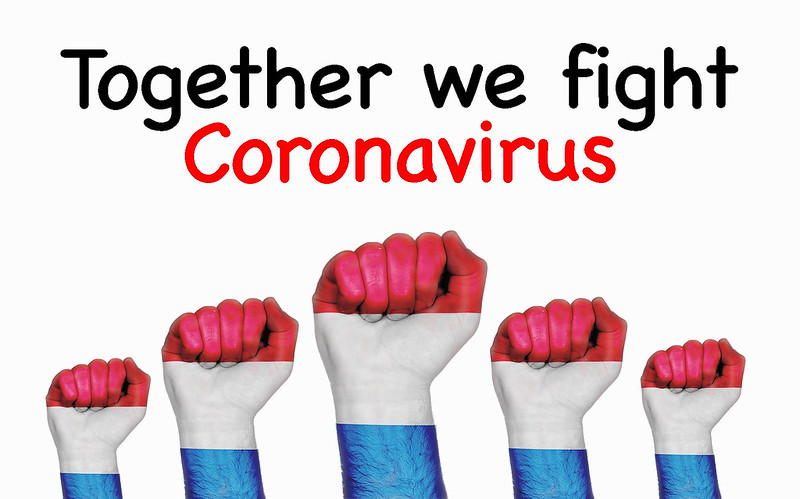
Five months after the coronavirus pandemic was declared, the virus continues to spread across the globe.
Neither large countries such as the United States, nor smaller countries such as the Netherlands are being spared.
The Netherlands — population slightly more than 17 million — which had early success in containing the virus is now seeing an upsurge in new cases.
Last week, the number of new infections doubled to 2,588. As of this writing the Netherlands has suffered nearly 59,000 coronavirus cases and 6,157 deaths.
The Dutch government and health agencies are taking several steps to stem the surge. Among the measures are two-week-closures for cafes, bars, movie theaters and museums in high-risk areas and power given to mayors to implement similar measures where necessary.
As we have seen in the United States, the spread is partly attributed to young people not observing the guidelines recommended or mandated by health agencies.
At a recent news conference, the Dutch Prime Minister, Mark Rutte, specifically addressed this segment of the Dutch population. He did so with the tone, seriousness and purposefulness Americans would love to see their president use in this time of crisis.
“If too many of you ignore the rules, we will all be stuck inside and you will be a danger to your grandparents and vulnerable people…Corona is not over, it is no joke and it is moronic to act as if it is,” Rutte appealed.
But perhaps even more powerful is a recent letter that appeared in the Dutch newspaper Algemeen Dagblad (AD.nl) last week.
The letter is written by a 94 year old who was 15 when World War II broke out. He was nabbed by the Nazis when he was 19 and sent to a labor camp where he spent seven months of his young life, returning home when the Netherlands was liberated.
Jan Hoek describes how he first tried to evade the razzia, but eventually turned himself in to prevent Nazi retribution against neighbors. He also recalls the 8 PM curfew during the war.
After the war, Jan wanted to get his old job back but was instead called into military service and, in 1946, was dispatched to the Dutch East Indies where he served for three years. “It wasn’t a pleasant time,” Hoek says, “I am still trying to forget it.”
Why does the 94-year-old Dutch veteran write this?
It is simple. Just like many of us seniors who are especially vulnerable to the deadly virus would like to do, Hoek asks the Dutch “jongelui” (young people), referring to his own generation’s trauma : “We lost 10 years of our youth. Please try for a short, little year to keep a stiff upper lip. Then, after that short year, you most likely will be able to fully enjoy your young life. I am 94 years old, but I am counting on you.”
“We seniors” were all young once. We all thought we were invincible, invulnerable and we understand the loss young people are experiencing.
Psychologist Robin Gurwitch, from Duke University, in Durham, N.C. perhaps says it best:“Many teens aren’t getting to participate in typical rites of passage — getting your driver’s license at 16, sports competitions, proms, graduations… We need to acknowledge that there is grief and anger and frustration and sadness.”
Perhaps thinking of Jan Hoek’s generation, she adds: “Not since World War II have we had to take such drastic measures and change how we do all of these things…We may have them later… but there’s still a sense of missed opportunities and lost expectations.”
World Health Organization’s Director-General Tedros Adhanom Ghebreyesus has a little stronger advice:
I have a message for young people: you are not invincible. This virus could put you in hospital for weeks, or even kill you. Even if you don’t get sick, the choices you make about where you go could be the difference between life and death for someone else.
It goes without saying that the “someone else” could be those young people’s fathers, mothers, grandmothers and grandfathers.
Referring to the group that needs to change their behavior the most — the 20 and 30-year-olds — Peter Collignon, a professor of clinical medicine at the Australian National University Medical School in Canberra, points to the dilemma that we must resolve: “How do you maintain behavior in that group, when the consequences for them medically are much less than 70 or 80-year- olds, yet the economic consequences are much higher for them?”
It is certainly a difficult dilemma, but messages like Jan Hoek’s will hopefully tug at the goodness and responsibility that reside in all young people.
The “boomer generation” counts on that.
CODA:
As an even younger generation, those of “K-12 age,” starts returning to school, a new dilemma arises affecting and possibly putting at risk the children themselves, their siblings, parents, and grandparents.
At least 97,000 children in the United States tested positive for the coronavirus the last two weeks of July alone, according to a new report from the American Academy of Pediatrics and the Children’s Hospital Association.
And, contrary to the notion “at the highest level” of our own government that children are “virtually immune” from coronavirus, 338,982 children have been infected since the beginning of the pandemic, according to the same report.
Read more HERE
















